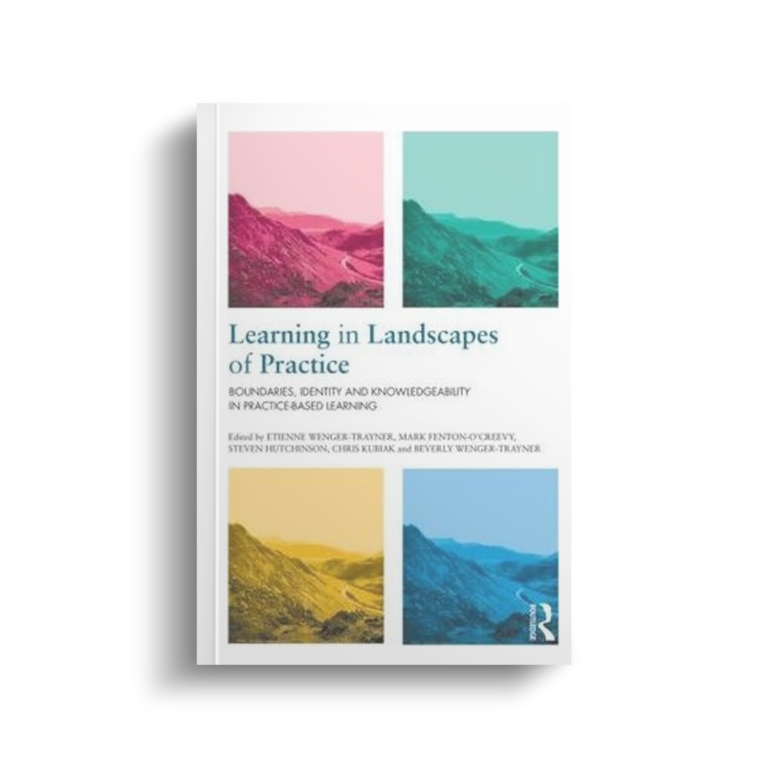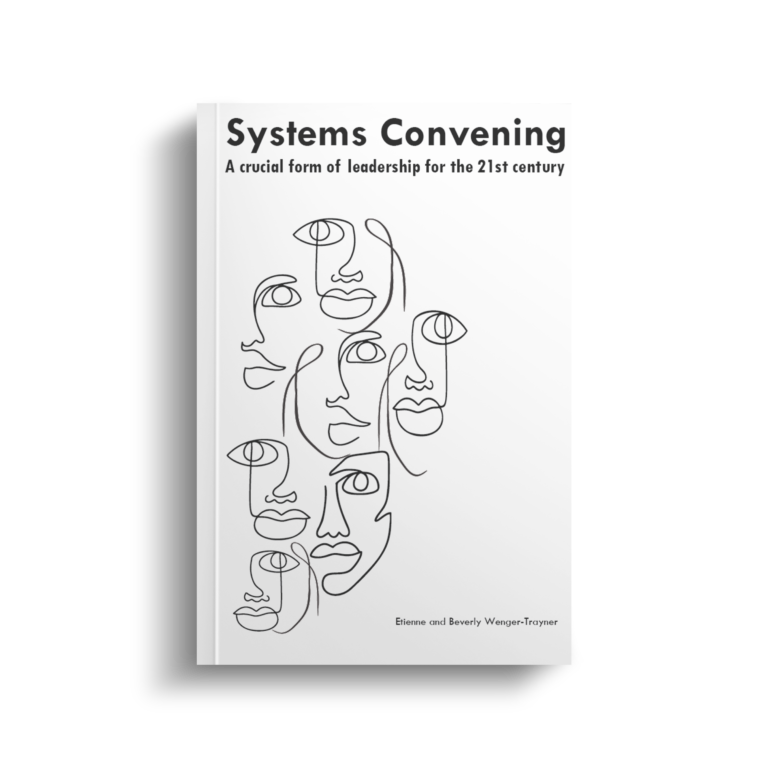Social landscapes
shaping the places we live in
Keywords
Landscapes of practice
Systems
Relationships
Boundaries
Trajectories of identity
Engagement
Imagination
Alignment
Scale
What they are
The social landscape refers to the texture of the social world. It is constituted by social practices, social systems, and social relationships, as well as the boundaries between them. It is the raw material of social learning, shaping, and in turn being shaped by, our learning.
A social landscape perspective entails a tacit or explicit awareness of the complex social, cultural, and political texture of the world in which we live. Having this awareness is fundamental to developing a social learning perspective.
The various entities that constitute the landscape are not just the formally recognized ones. We focus on three interrelated types of structuring forces that configure the landscape:
- Systems: sets of designed elements, institutions, projects, activity structures, and artifacts that shape the landscape
- Practices: what people actually do and the competences and approaches they have developed to do what they do
- Relationships: people or groups of people who are bound by commitments, friendships, similar experiences, labels, or other ties
How they contribute to social learning capability
A big issue in social learning capability is that of scale. The learning of a small community does not easily translate into the learning of a larger structure, such as an organization, a discipline, a nation, or the world. The learning that gives rise to a top-down decree does not necessarily translate into corresponding learning in local communities. The ability to address complex challenges depends on the ability to scale social learning capability up and down. The texture of the social landscape shapes the context in which this has to take place.
The landscape metaphor
The metaphor of a landscape connotes something fairly concrete that people live in and travel through, noticing, adapting to, and shaping its geography. It conveys a complex texture of contours and boundaries, relationships and power structures, entities, and viewpoints. Mountains and cities convey the idea that certain areas are already occupied by practices and systems, communities and institutions, relationships, and influences—with all the opportunities and challenges this historical configuration presents.
A landscape has both natural and designed features, raw material and built systems. A landscape is not static, but neither is it easy to change. It can be refashioned and reconfigured, but not without challenging the established, being prepared to take advantage of unexpected opportunities, and preparing for resistance. The social landscape is an artifact, a product of history. As designed elements, systems are both the creations of certain practices and given life by the relationships and practices they shape. The landscape does not sustain itself; that takes ongoing work.
As constituents of the social landscape, systems, practices, and relationships all create boundaries, loyalties, and power dynamics, but they are distinct. There is a constant interplay among them, but it is not a deterministic relation. Practices may or may not be aligned with the relevant systems. In practice, systems may or may not give rise to the effects intended by their designers. And the effects of relationships on systems and practices are difficult to predict.
A social landscape perspective on learning entails a deep awareness of the social texture of the human world, in terms of systems, practices, and relationships defined at multiple levels of scale.
More on social landscapes
Workshops and events
In our workshops on systems convening, the perspective of social landscape is central. We discuss the concept, explore its use, and apply it to mapping participants’ projects.
Introducing the landscape perspective
In this theory book, we explore the concept of landscape of practice as a way to expand social learning theory beyond single communities of practice.
More formal definition of the concept
In this more recent practical book, we introduce the more formal definition of social landscape outlined here. This clarifies the work of systems convening and the perspective on learning it entails.









